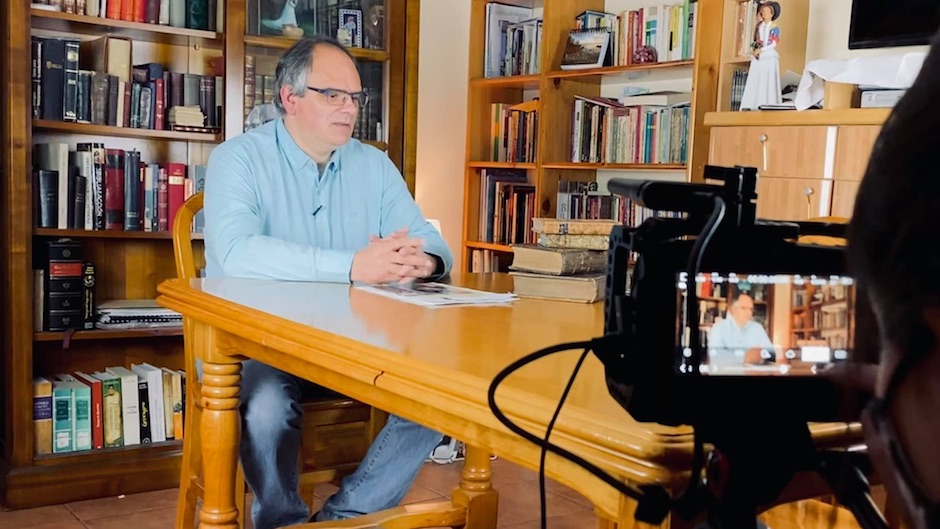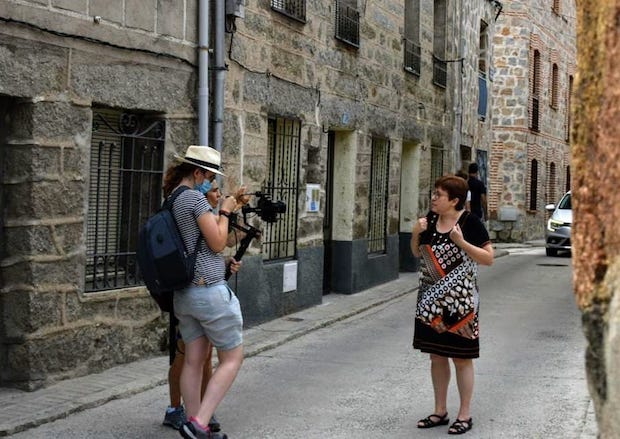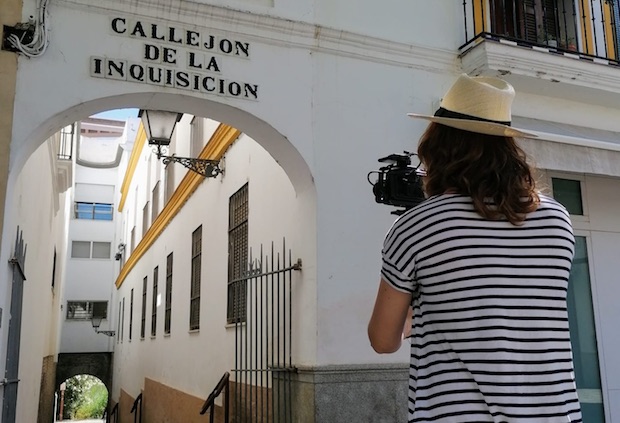A history documentary about Segovia: “The flame of the gospel is still alive”
The final University project of an evangelical student turned into a documentary about Protestantism in the Spanish city. “My aim is to touch believers and unbelievers’ hearts”, she says.
Protestante Digital · SEGOVIA · 04 OCTOBER 2021 · 13:20 CET

Sara Pesquera never thought that her final University degree project could be turned into a documentary on the history of Protestantism in the Spanish city of Segovia.
“There are not many informative documentaries in Spain covering the history of Spanish Protestantism, and I am receiving a lot of encouragement. In the future I would like to work with more provinces”, explains Pesquera, an actress by training.
'Proyecto Lume' (Lume Project) has already become popular among the churches in Segovia.
According to its creator, it aims to “be spread by the churches in Spain” and “generate awareness and a movement of recovery of Protestant history among evangelicals in Spain, before many testimonies get lost”.
“I want to encourage people, wherever they are, to ask their grandparents, the older people in their church, how they were first told about Jesus”, says Pesquera.
Question: What is 'Proyecto Lume'?
Answer: 'Proyecto Lume' is my final University degree project , which I am beginning to prepare. When I took the subject History of Spanish Christianity I was fascinated by it and I realised that I didn't know much about my roots. I think this is very common, Spanish Protestants have little knowledge of our history.
As a result of an interview I had to do for an assignment with the oldest woman in the local church of which I am a member, I thought I could do more in-depth research into the history of Protestantism for my final project.
At first I thought about Spain, but then I narrowed it down to Segovia and how Protestantism began in the province, knowing that there is little written about it.
One initial idea I had was to make a play with some testimonies, but my tutor for the project suggested the possibility of making a documentary and I decided to do it.
Then, two young people from a church in the Catalan city of Castelldefels, joined the project to help me, especially with the technical part. We also received a donation from a mission to buy some of the equipment, so that we took the plunge.
Q: What is your objective?
A: The first and most basic, is to teach about a part of history that I consider quite unknown in our country. But, inevitably, my aim is also to touch people's hearts.
For believers, I hope it will help them to see the struggle of their brothers in the past and the perseverance that has resulted, for example, in my being here today.
And for non-believers, because above all I do this for an evangelistic purpose, to make it known that there is a different way of believing in Christ.

Q: How do you expect the churches to receive the documentary?
A: I think knowing the history is a must for churches. We should know history because that helps us knowing who we are. I would like the film to be an encouragement to believers, especially when they see brothers and sisters who have given their lives for the Lord.
I hope they can see that all the effort that these people made has not been in vain. I would like the documentary to encourage believers to have a more committed life with the gospel. There is a lot of work to be done.
Q: What can it offer to someone who doesn't know God?
A: My friend Inés is working on the documentary. She is not a believer. She is a photographer and graphic designer, and she likes history very much, so she liked the project and was encouraged to participate in it.
It has been very good for me to have the vision of a non-believer. She is listening to the interviews, and she is getting to know the testimony of people who have left everything for God.
I would like a non-believer to know a part of Spanish history from the point of view of a minority that has been oppressed, but also to be able to reflect on the faith of these testimonies.
I would like people to finish watching the documentary and feel the need to read the Bible. I hope they wonder what is in the Bible that made it a forbidden book for so long and for which so many people gave their lives. My friend has already done it, she has asked me for a Bible. She had never done that before.
Q: You are concentrating on Protestant history in Segovia, what are you finding?
A: At the beginning of the 20th century missionaries arrive in Segovia from England and stay there for several years until the First World War begins. The periods of history in which there is a Protestant presence are interspersed with those in which there is not.
During Franco's regime, there is very little information on the Protestant presence, until the 1960s, when some groups from Operation Mobilisation arrived.

Q: Any curiosity that you have learnt during the filming of the interviews that you can share?
A: The life of Gabriel Sánchez, who was from the city of Palencia and married Josefa Alonso, from a village in Segovia. They were both local missionaries in Segovia. Gabriel was shot when Franco's troops entered Navaluenga, a village in Ávila.
As soon as Franco's soldiers arrived, the sacristan denounced Gabriel and they shot him after torturing him. It is a sad story, but at the same time a moving one, because of what it means that Gabriel gave his life for the gospel.
God's work is bigger than our sights. At that time, it seemed that all the work of the missionaries had been destroyed, but today the flame of the gospel is still alive.
Q: How has you made 'Lume'?
A: The documentary research work began with an interview with Juan María Galán, a brother of the church in Segovia who for many years, out of interest, has been gathering information about the arrival of the first colporteurs (people who distribute or sell Bibles) and all the Protestant presence since the 19th century, not only in Segovia capital but throughout the province.
After interviewing him, we filmed in the Municipal Archives of Segovia and in the Diocesan Archives of Segovia, in order to film some publications from the 1930s which warned about the Protestants.
We have also interviewed fourteen people who were witnesses of the contemporary beginnings of the evangelical church in Segovia and historians.
Q: Why do you call it 'Lume'?
A: We were looking for a word that would convey the idea of something that, although it starts small, it has repercussions. I liked the idea of fire, which in the Bible it is very much related to the Holy Spirit.
I think it is a very powerful element, it gives warmth, it illuminates. 'Lume' is the Galician word for 'fire', and although Galicia is not directly related to the documentary, we liked the sound of it.
Q: How can people find out more about 'Lume' and get involved?
A: We have a Facebook page and an Instagram account. There we upload photos and previews of some interviews. We also have a crowfunding campaign on GoFundMe.
We started by buying a film camera, a sound and lighting system, a computer, etc. Doing something well in the audiovisual world costs money. Apart from that, we also have to pay for our trips..
Published in: Evangelical Focus - culture - A history documentary about Segovia: “The flame of the gospel is still alive”
